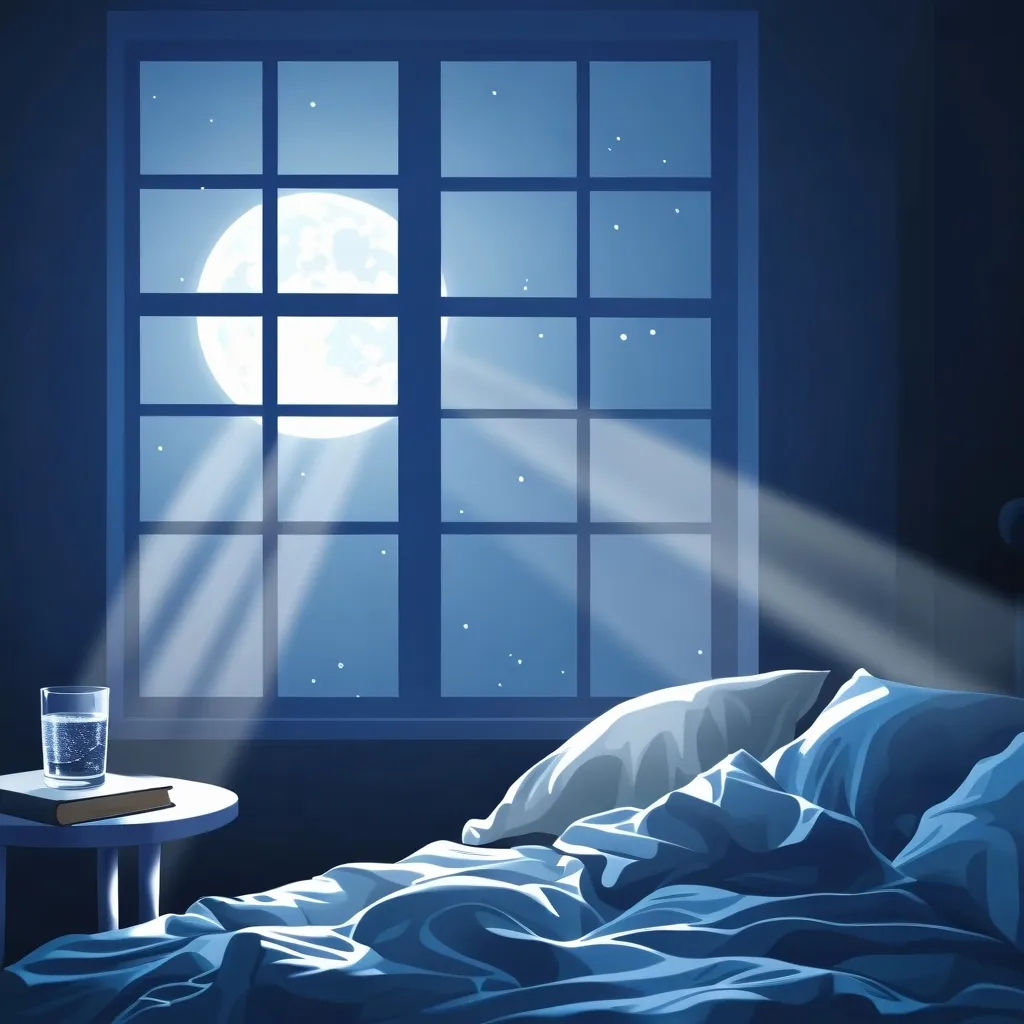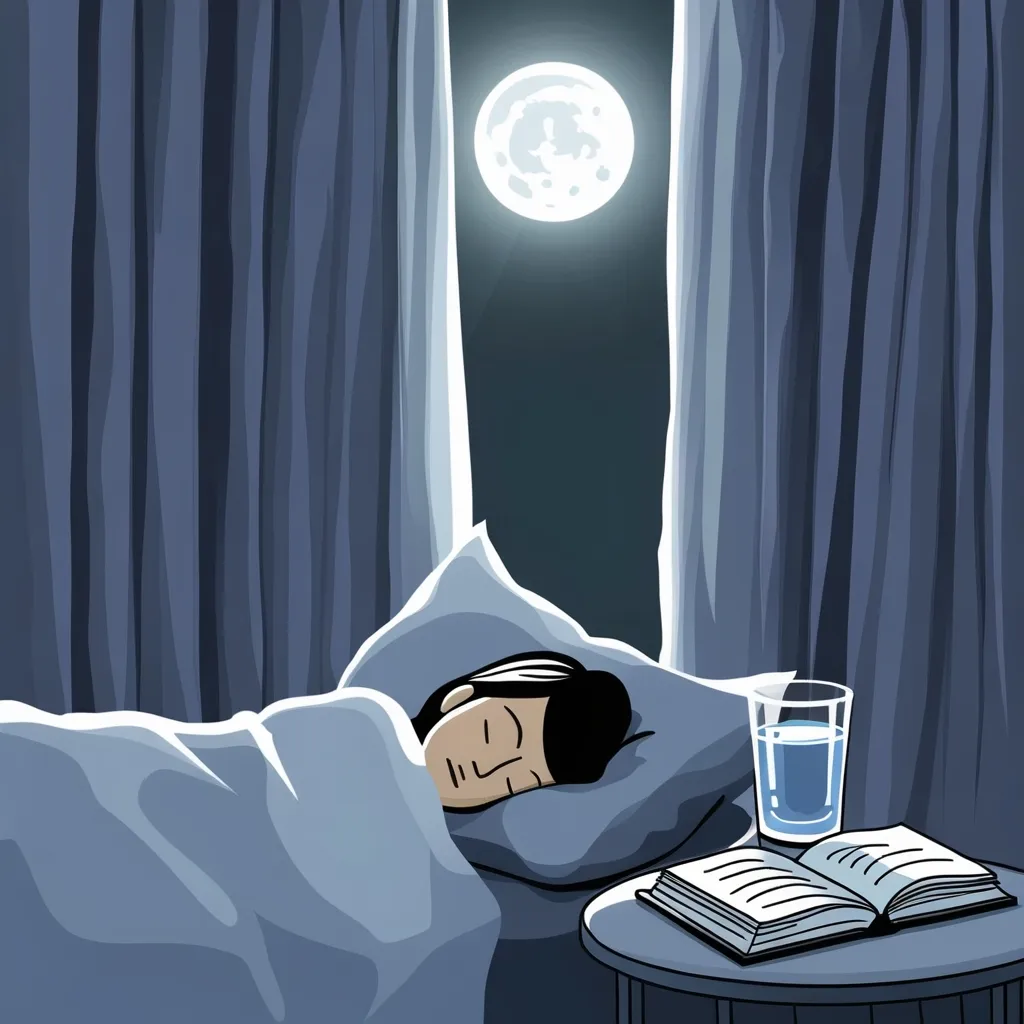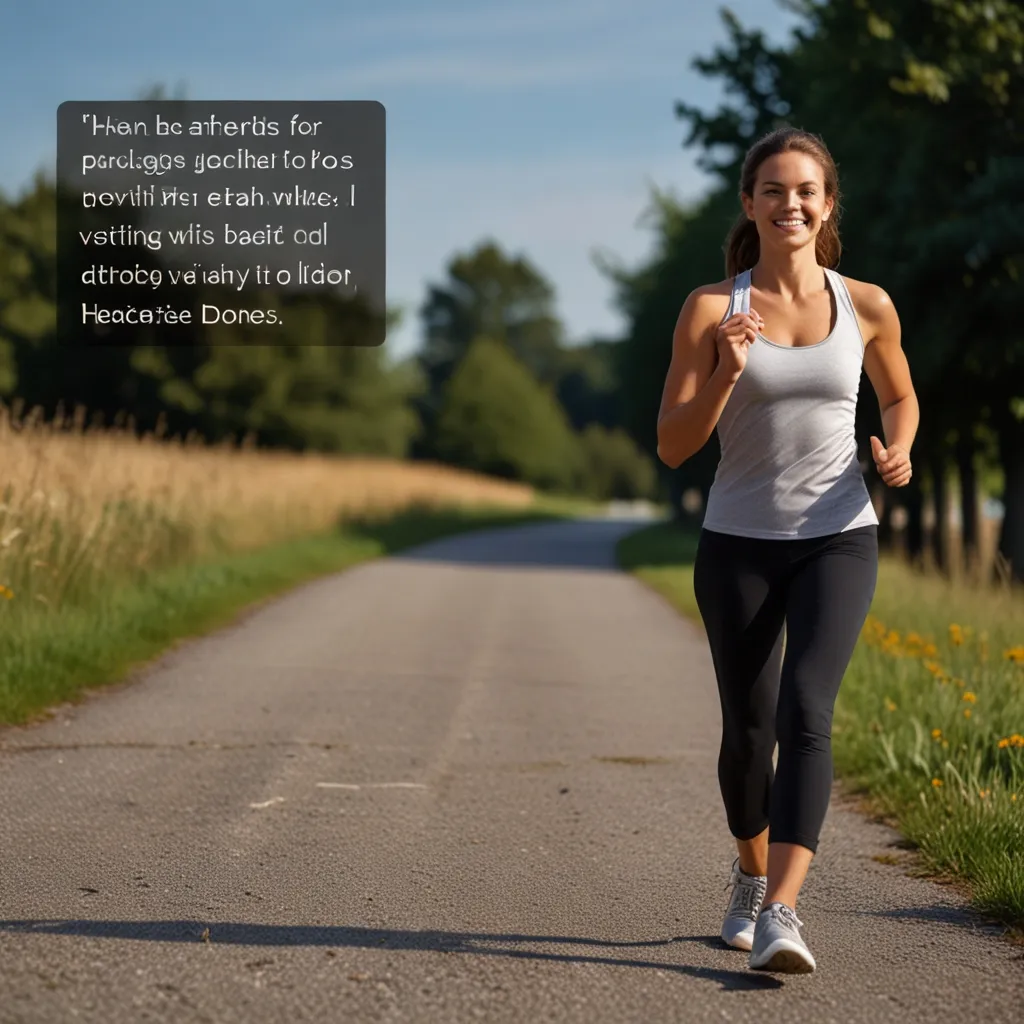Sleep: The Mysterious Realm of Rest and Rejuvenation
Ever wondered why we spend about a third of our lives with our eyes closed, lost in dreamland? Sleep is one of those things we all do, but few of us truly understand. It’s like a nightly adventure our bodies embark on, filled with twists, turns, and a whole lot of science.
Let’s dive into the world of sleep and uncover its secrets. Trust me, by the end of this, you’ll look at your pillow in a whole new light!
The Body’s Internal Clock: More Than Just Ticking
You’ve probably heard of the “body clock,” right? Well, it’s not just some fancy term scientists made up. It’s a real thing, and it’s called the circadian rhythm. Think of it as your body’s personal timekeeper, ticking away 24 hours a day.
This internal clock doesn’t just tell you when to sleep. It’s like a bossy manager, controlling everything from your body temperature to when you feel hungry. And the coolest part? It’s influenced by light. That’s why you feel sleepy when it gets dark and perky when the sun’s out.
But wait, there’s more! Your body also has this neat little system called sleep-wake homeostasis. Fancy name, simple concept. The longer you’re awake, the more your body craves sleep. It’s like a sleep piggy bank – the more hours you put in being awake, the more your body wants to cash in on some shut-eye.
Hormones: The Sleep Cocktail
Now, let’s talk about melatonin. No, it’s not a new superhero – it’s a hormone your body produces to help you sleep. When it gets dark, your brain goes, “Hey, time to wind down!” and starts pumping out melatonin. It’s like your body’s natural sleeping pill.
But melatonin isn’t the only player in this game. There’s also adenosine, which builds up in your brain the longer you’re awake. It’s like a sleepiness meter, slowly filling up until you can’t keep your eyes open anymore.
And here’s a fun fact: caffeine works by blocking adenosine receptors. So when you drink that cup of joe, you’re essentially putting a “do not disturb” sign on those receptors. Clever, huh?
The Sleep Cycle: A Nightly Rollercoaster
Alright, buckle up because we’re about to take a ride through your nightly sleep cycle. It’s like a theme park in your brain, with different stages and attractions.
First up, we have NREM sleep. It’s divided into three stages:
-
Stage 1: This is like dipping your toe in the sleep pool. You’re dozing off, but a loud noise could easily wake you up.
-
Stage 2: Now you’re getting into it. Your brain waves start to slow down, and you’re less aware of your surroundings.
-
Stage 3: This is the deep sleep stage. It’s like diving into the deep end of the pool. Your body is super relaxed, and your brain is taking a serious chill pill.
After NREM, we hit the REM stage. This is where the magic happens. Your brain suddenly lights up like a Christmas tree, and you start dreaming. It’s also when your body paralyzes most of your muscles (don’t worry, it’s normal!) to stop you from acting out those dreams.
You cycle through these stages about 4-6 times a night. Each cycle lasts about 90-120 minutes. It’s like your brain is putting on a nightly show, with different acts and intermissions.
Maximizing Your Sleep: Tips and Tricks
Now that we know what’s going on behind the scenes, how can we make sure we’re getting the best sleep possible? Here are some tips:
Stick to a schedule: Your body clock loves routine. Try to go to bed and wake up at the same time every day, even on weekends. Your internal timekeeper will thank you.
Create a sleep sanctuary: Your bedroom should be like a cozy cave – dark, quiet, and cool. Kick out the TVs and computers – they’re sleep party poopers.
Wind down before bed: Develop a pre-sleep routine. Maybe read a book, take a warm bath, or do some gentle stretches. It’s like giving your brain a bedtime story.
Watch what you eat and drink: Caffeine, alcohol, and big meals close to bedtime can mess with your sleep. It’s like trying to sleep after a rollercoaster ride – not easy!
Get moving: Regular exercise can help you sleep better. Just don’t do it too close to bedtime, or you might be too amped up to snooze.
Stress less: Easier said than done, right? But try some relaxation techniques like deep breathing or meditation. It’s like a lullaby for your mind.
The Evolution of Sleep: From Caves to Comfy Beds
Here’s a cool tidbit – our ancestors didn’t sleep the way we do now. They often had two sleep sessions per night, with a period of wakefulness in between. They’d sleep for a few hours, wake up and do some quiet activities, then go back to sleep until morning.
This “biphasic sleep” pattern might explain why some people wake up in the middle of the night and can’t get back to sleep right away. So if this happens to you, don’t stress. You might just be channeling your inner caveman!
Seasonal Sleep: Winter Hibernation, Anyone?
Ever notice how you feel sleepier in winter? There’s a reason for that. Our bodies are still in tune with nature’s rhythms. In winter, when days are shorter and darker, we naturally want to sleep more. It’s like our bodies are trying to hibernate, even though we don’t need to anymore.
In summer, with longer days and more light, we tend to need less sleep. So if you find yourself staying up later in summer, don’t worry – it’s perfectly natural.
Quality Over Quantity: The Sleep Golden Rule
Here’s the thing – it’s not just about how long you sleep, but how well you sleep. You could spend 10 hours in bed, but if your sleep quality is poor, you’ll still wake up feeling like a zombie.
Good sleep quality means you’re cycling through all the sleep stages properly. It means you’re not waking up multiple times during the night. It means you wake up feeling refreshed, not like you’ve been hit by a truck.
The Health Connection: Why Sleep Matters
Now, let’s get serious for a moment. Poor sleep isn’t just about feeling grumpy the next day. It can have some pretty serious health consequences.
Chronic sleep deprivation has been linked to all sorts of nasty stuff – obesity, heart disease, weakened immune system, and even certain types of cancer. It’s also common in people with neurological disorders like Alzheimer’s and Parkinson’s.
Think of sleep as your body’s nightly repair and maintenance session. Skip it too often, and things start to break down.
The Final Snooze
So there you have it – the fascinating world of sleep laid bare. From the ticking of your internal clock to the nightly adventures of your brain, sleep is far from the boring, passive process we often think it is.
Next time you crawl into bed, take a moment to appreciate the complex dance your body and brain are about to perform. And remember, good sleep isn’t a luxury – it’s a necessity. So prioritize those Zs, create good sleep habits, and wake up ready to conquer the world.
Sweet dreams, sleep tight, and may your circadian rhythm always be in sync!






